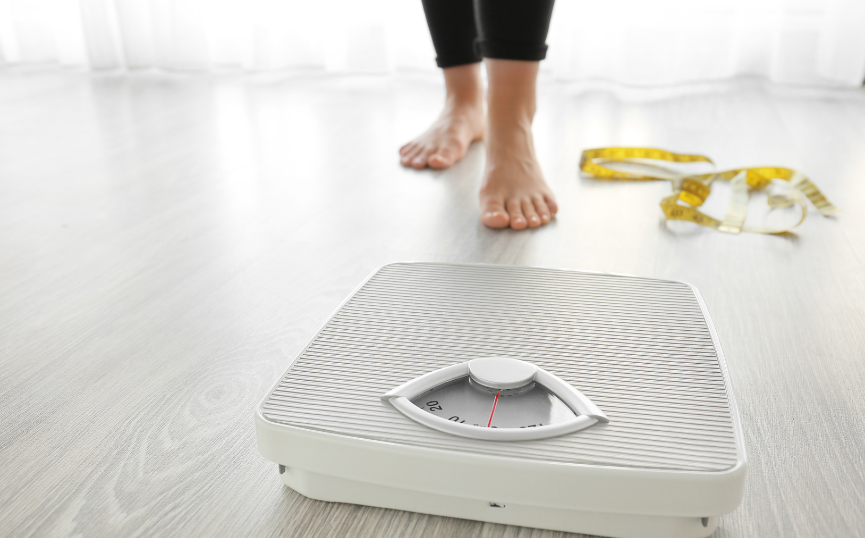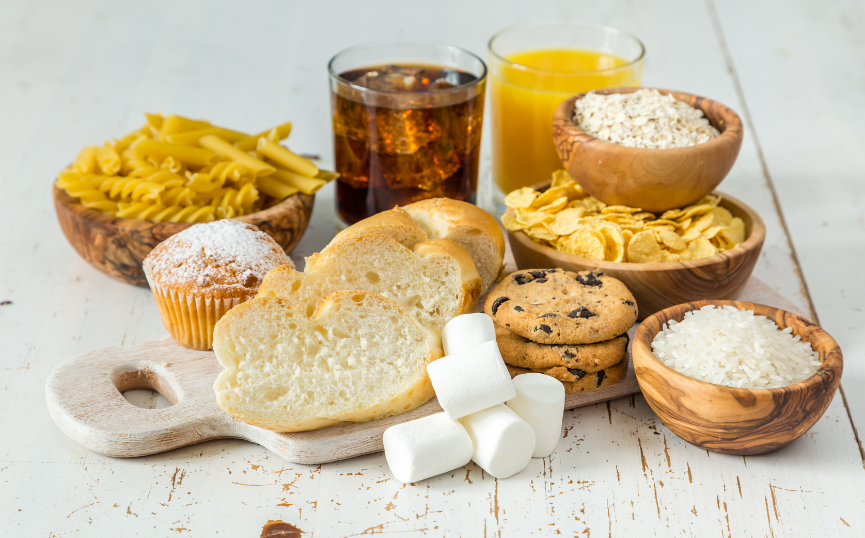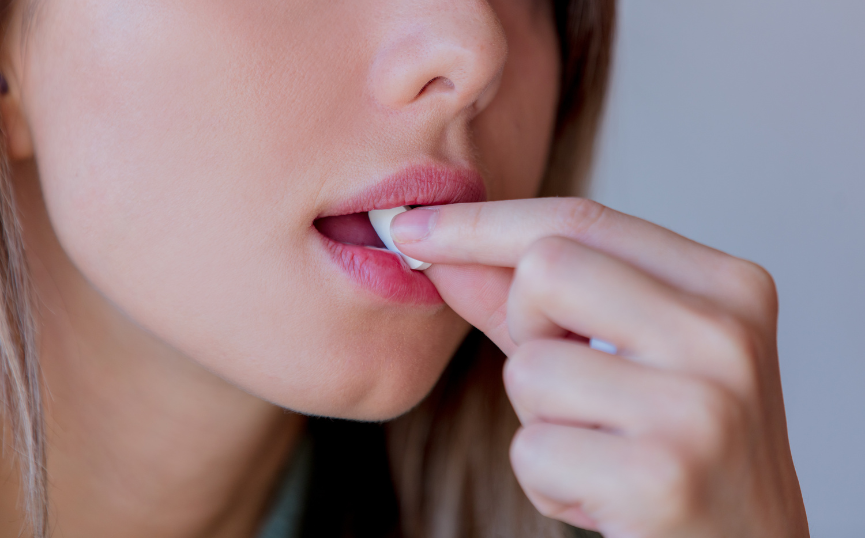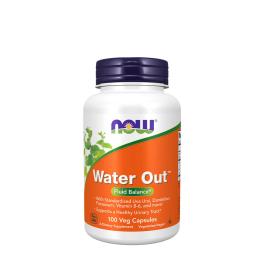What are the best diuretics?
Water retention (oedema or, incorrectly, water-type obesity) can cause some people to have an extremely high weight gain. Some people can accumulate up to forty (40!!) kilograms of excess water. Carrying around water weight can make everyday life difficult; it can restrict mobility and can be a precusor to many serious medical conditions. It may be a good idea to use a natural diuretic to help drain the excess water, but on their own, without addressing the causes, diuretics will only work for a while.

So at Vitamin360, we’re going to explain what can cause excessive water retention in your body! Natural diuretics are also available here, and here we’ll introduce them in today’s article!
First of all, it is important to clarify that this article is about the treatment of oedema that is either body-wide or at least limited to the entire lower limbs. If the swelling is painful and affects a small area, it may be a sign of some kind of joint or muscle injury, or possibly a thrombosis. Also, it is important to note that the use of natural diuretics is not a substitute for medical advice or medical diuretic preparations. Of course, in the case of extreme weight gain of 40 kg, a natural preparation will certainly not be enough.
What causes water retention?
First and foremost, excessive carbohydrate consumption!1
Our body retains 2.7 grams of water for every gram of glucose.
So we need to reduce our carbohydrate intake, not just sugar, but carbohydrate intake in general, because our bodies will ultimately produce simple carbohydrates: sugar (or more precisely, glucose).
This is because glucose has a high osmolality. To understand the process without technical jargon, it is enough to know that the electrolyte ratio of our cells; that is, the ratio of water to minerals, is a very delicate balance. Glucose would upset this balance if it weren’t for the water our bodies compensate with. Therefore, once a higher amount of glucose enters the cells, our body takes up proportionally more water to compensate.

Second, deterioration of the kidneys also leads to water retention.2
Depending on the osmolality, water regulation - is carried out by the kidneys. By regulating the hormone AVP (arginine-vasopressin). Kidney damage is when the kidney loses its filtering function. The most common form of this is chronic kidney disease, which develops slowly. In addition, excessive protein secretion by the kidneys (nephrotic syndrome) can lead to water retention.3
Third, dysfunction of the lymphatic system also causes water retention.4
Apart from hormones and the kidneys, the lymphatic system is the most powerful regulator of water balance. If the lymphatic system cannot do its job properly, lymphoedema, the build-up of proteins that the lymphatic system cannot remove due to a blockage, can occur. 4
Fourth, other conditions that affect kidney function:
- Renal arthery stenosis also often causes water retention, as it can reduce blood flow to the kidneys.
- Hormonal changes caused by cirrhoses of the liver can also reduce blood flow to the kidneys.
- Heart failure can also cause a reduction in blood flow, as the heart is less able to pump.3
- High stress hormone levels, high blood pressure and high blood sugar levels can also damage the kidneys over time. 3
Leaky capillaries can also cause water retention
Most commonly, drugs taken for high blood pressure cause damage to the capillaries, but a rare condition can also occur: systemic leaky capillary syndrome.
If persistent water retention persists, see a doctor!
So all in all, waterlogging is not child's play! Basic medical tests are essential for long-term and severe cases of water retention. Even diuretic foods and herbal extracts will only help with moderate health problems. In the case of heart failure, capillary leakage, renal artery stenosis, hypertension, cirrhosis of the liver and kidney failure, the underlying causes should be treated first.
If the problem is not serious and/or the doctor finds everything is fine, then we can move on to natural diuretics.
Diuretic diet
A diuretic diet starts with reducing sugar intake. If this can be ticked off, then adequate water intake becomes important, as dehydration causes the body to store even small amounts of water. Excess water intake, on the other hand, has the opposite effect: it literally 'flushes out' the water and minerals that have been retained. The recommended daily water intake is according to the National Academy of Medicine, USA 20045:
- for adult women: 2.7 l (during breastfeeding: 3.8 l)
- for men: 3.7 l
Put your hand on your heart, do you have this amount?
Diuretic foods, drinks, teas
If you've cut down on sugar and drink enough water, let's look at how you can get diuretics from food. Below is a list of the most powerful diuretic foods:
- Coffee: the foundation of diuretics, many people don't even get out of bed and start the day with coffee to kick-start the bowel and urination stimulus. Coffee is such a powerful diuretic! Coffee mediates its diuretic effect through caffeine.10 Caffeine stimulates our body's production of adrenaline, a stress hormone, or rather our hormone responsible for survival. Adrenaline's effect is best illustrated by the following example: what would happen if you tried to jump out of an aeroplane? Long before we jump, our heart would be beating faster, our legs would be running wildly, we would be pacing up and down and we would probably go to the toilet a lot. It is precisely for its stimulating and diuretic effects that adrenaline-stimulating caffeine is used as a morning starter! But dosage is the poison - watch the dosage of caffeinated products, as they can have water-binding properties if taken in excess. Do not exceed 3-4 cups per day!

- Green tea: green tea also contains caffeine, which gives it strong diuretic properties. It also detoxifies with its strong antioxidant effects.
- Dandelion and other herbs such as: medicinal bearberry leaf, juniper berry, black pepper, field horsetail. These herbs can both lower blood pressure (one of the causes and contributors to dehydration) and replenish minerals lost through dehydration. 7,11
- Parsley: acts in a slightly different way to most diuretics (namely via the cellular sodium/potassium pump).14
- Celery: has a diuretic effect thanks to the phytalides it contains, and is also high in potassium and magnesium, which help balance out any electrolyte balance that may be upset by diuretic action.
- Beetroot: together with spinach, a good source of nitrite. Nitrite can have antihypertensive and diuretic effects by dilating the diameter of the blood vessel wall.12
- Watermelon: in addition to its high water content, watermelon contains an amino acid called l-citrulline, which, like nitrite, causes vasodilatation. 13
Diuretic tablets
Natural diuretics contain the above-mentioned active ingredients and/or extracts of plants, usually in a complex and effective formula. Also, an important factor is to replenish the minerals depleted by diuretic action.

The only question you have left is which are the best on the market?
And the answer is all of them! The natural diuretics contain mostly the same herbs, so it's the strength that makes the difference. The table below lists the top 5 natural diuretics in descending order of strength.
| Net herbal content | Name | Note |
| ~3300 mg | AMIX DIURETIC COMPLEX (90 CAPSULES) |
It has a very high content of dandelion (one of the best-researched diuretics). This is the strongest diuretic we have available! In addition to using it, we must ensure that the mineral is replaced. TRACE MINERALS NO! MUSCLE CRAMPS (120 ML) will be a good choice for this!
|
| 1200 mg | MHP XPEL (80 CAPSULES) |
In addition to Xpel, it is the most complex on the market: in addition to herbal extracts, it also contains minerals to replace the upset electrolyte balance. The added green tea leaf and guarana seed extract can also enhance the beneficial effect of caffeine.
|
| ~1800 mg | GASPARI NUTRITION PROVEN DIURETIC WATER PILLS (80 CAPSULES) |
It only contains potassium as an electrolyte optimizer, if cramps occur, it is worth using the TRACE MINERALS NO! MUSCLE CRAMPS (120 ML)
|
| ~1500 mg | SCULPT SQUEEZE® (60 CAPSULES) |
It does not contain added minerals, so it would be worthwhile to use TRACE MINERALS NO! MUSCLE CRAMPS (120 ML) in this case as well.
|
| ~600 mg | NOW FOODS WATER-OUT (100 CAPSULES) |
If you have not used a diuretic yet and the amount of stored water is apparently small, then let's start with this.
|
Although you can control the strength of the diuretics by adjusting the dosage, we strongly recommend that you stick to the manufacturer's prescribed dosage. This will also give you a realistic idea of the value for money of the supplements.
Let's end by clarifying whether there is such a thing as watery obesity.
The short answer is no! The longer answer is also no! With a higher fat mass comes more water retention, but there is no such thing as someone with a low body fat percentage having outward symptoms of obesity due to high water retention. You can have water retention even with low body fat, but it is not called obesity, it is called weight gain. There are big differences between the two. Obesity is a term used to describe excess fat, so water type obesity is a misnomer and meaningless. Fat can make someone look obese, but in extreme cases, the amount of water accumulated can be as much as 40 kilograms.9 This is accompanied by a lot of accumulated fat.
If you want to find out more or are ready to try some practical products, don't hesitate! Click on the link and browse through our range of diuretic products to find the one that best suits your specific needs:
WATER PILLS
Used sources:
- Gisolfi CV, Summers RW, Schedl HP, Bleiler TL, Oppliger RA. Human intestinal water absorption: direct vs. indirect measurements. Am J Physiol. 1990;258:G216–222.
- Popkin BM, D'Anci KE, Rosenberg IH. Water, hydration, and health. Nutr Rev. 2010 Aug;68(8):439-58.
- https://www.sskidneyhospital.com/blog/water-retention-problems-due-to-kidney-diseases.php
- https://www.mayoclinic.org/diseases-conditions/lymphedema/symptoms-causes/syc-20374682
- Armstrong LE, Johnson EC. Water Intake, Water Balance, and the Elusive Daily Water Requirement. Nutrients. 2018 Dec 5;10(12):1928.
- https://pubs.rsc.org/en/content/articlehtml/2020/ra/d0ra00701c
- Clare BA, Conroy RS, Spelman K. The diuretic effect in human subjects of an extract of Taraxacum officinale folium over a single day. J Altern Complement Med. 2009 Aug;15(8):929-34. doi: 10.1089/acm.2008.0152. PMID: 19678785; PMCID: PMC3155102.
- Kreydiyyeh SI, Usta J. Diuretic effect and mechanism of action of parsley. J Ethnopharmacol. 2002 Mar;79(3):353-7. doi: 10.1016/s0378-8741(01)00408-1. PMID: 11849841.
- Ong HS, Sze CW, Koh TW, Coppack SW. How 40 kilograms of fluid retention can be overlooked: two case reports. Cases J. 2009 Jan 8;2(1):33. doi: 10.1186/1757-1626-2-33. PMID: 19133159; PMCID: PMC2628868.
- Maughan RJ, Griffin J. Caffeine ingestion and fluid balance: a review. J Hum Nutr Diet. 2003 Dec;16(6):411-20. doi: 10.1046/j.1365-277x.2003.00477.x. PMID: 19774754.
- Wright CI, Van-Buren L, Kroner CI, Koning MM. Herbal medicines as diuretics: a review of the scientific evidence. J Ethnopharmacol. 2007 Oct 8;114(1):1-31. doi: 10.1016/j.jep.2007.07.023. Epub 2007 Jul 31. PMID: 17804183.
- Rosenbaek JB, Pedersen EB, Bech JN. The effect of sodium nitrite infusion on renal function, brachial and central blood pressure during enzyme inhibition by allopurinol, enalapril or acetazolamide in healthy subjects: a randomized, double-blinded, placebo-controlled, crossover study. BMC Nephrol. 2018 Sep 21;19(1):244. doi: 10.1186/s12882-018-1035-x. PMID: 30241504; PMCID: PMC6150994.
- Allerton TD, Proctor DN, Stephens JM, Dugas TR, Spielmann G, Irving BA. l-Citrulline Supplementation: Impact on Cardiometabolic Health. Nutrients. 2018 Jul 19;10(7):921. doi: 10.3390/nu10070921. PMID: 30029482; PMCID: PMC6073798.
- Kreydiyyeh SI, Usta J. Diuretic effect and mechanism of action of parsley. J Ethnopharmacol. 2002 Mar;79(3):353-7. doi: 10.1016/s0378-8741(01)00408-1. PMID: 11849841.





